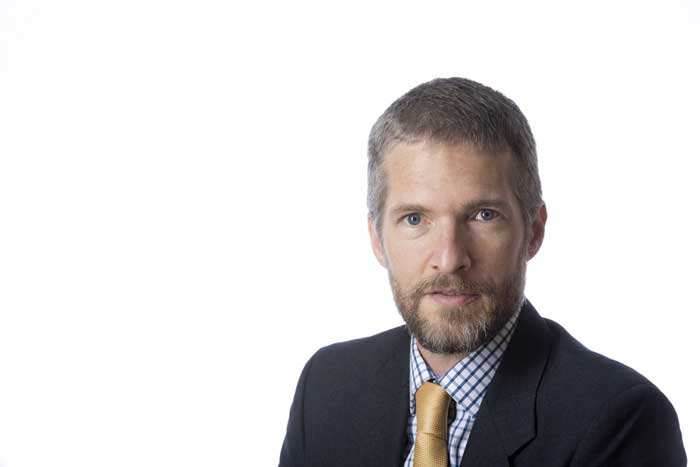Wiebelhaus-Brahm to discuss how truth commissions can promote racial reconciliation in last ‘Plain Talk on Race and Ethnicity’ lecture
A University of Arkansas at Little Rock professor will discuss how truth commissions can promote racial reconciliation in the U.S. during the next “Plain Talk on Race and Ethnicity” lecture on Tuesday, Nov. 27.
Dr. Eric Wiebelhaus-Brahm, associate professor in the School of Public Affairs, will give his lecture, “Will the Truth Set Us Free? Maximizing the Potential of Truth Commissions to Promote Racial Reconciliation in the United States,” at 5 p.m. in the Bailey Alumni Center.
“Truth commissions have become a common means through which societies address histories of violence and repression,” Wiebelhaus-Brahm said. “Usually, truth commissions are established during transitions to peace and/or democracy, such as South Africa in the 1990s. Increasingly, though, truth commissions are being established years after transitions. Some have suggested that they could be useful in promoting racial reconciliation in the United States.”
This talk will offer a critical perspective on what such a body might contribute in America by comparing truth and reconciliation commissions that have been established in South Africa to address apartheid repression, in Canada and Maine to explore the treatment of indigenous people, and in Greensboro, North Carolina, to investigate an episode of racial violence in the 1970s.
As part of his ongoing research, Wiebelhaus-Brahm employs a mix of quantitative and qualitative methods to investigate claims about the effects of truth commission processes on such outcomes as democratization, human security, and conflict duration.
“Scrutinizing these claims is critically important for setting more realistic policy expectations, particularly among victims and marginalized groups,” he said.
The event, which is sponsored by the UA Little Rock Anderson Institute on Race and Ethnicity, is free and open to the public. For more information, contact the Anderson Institute at 501-569-8932 or race-ethnicity@ualr.edu.
